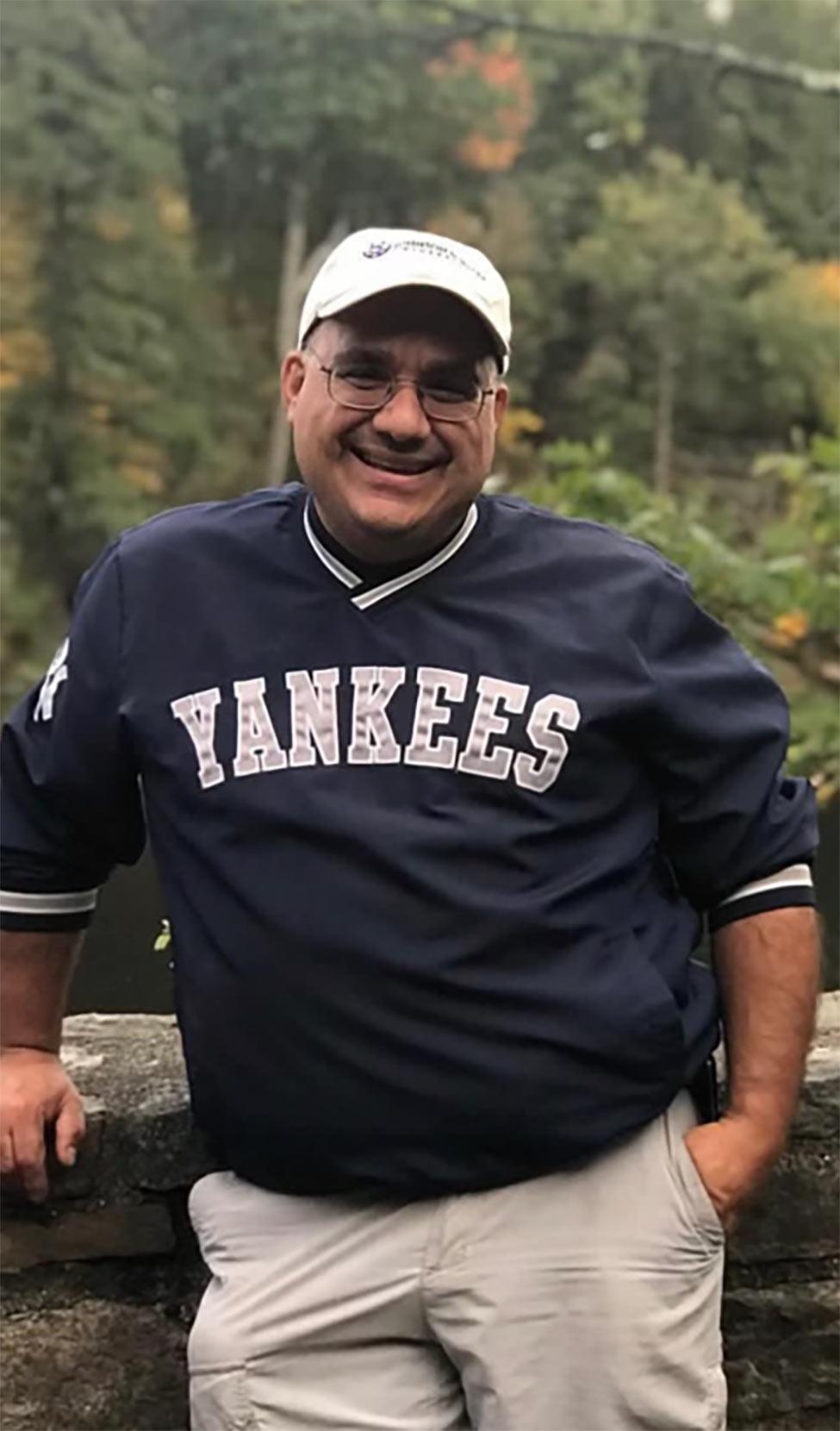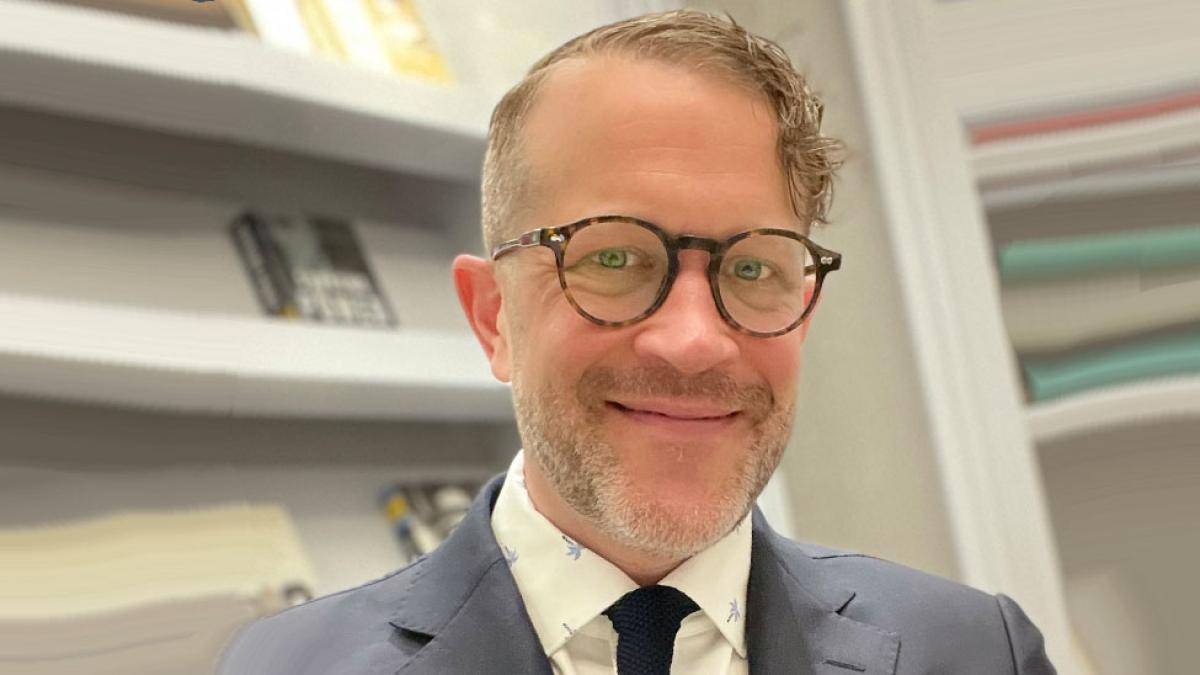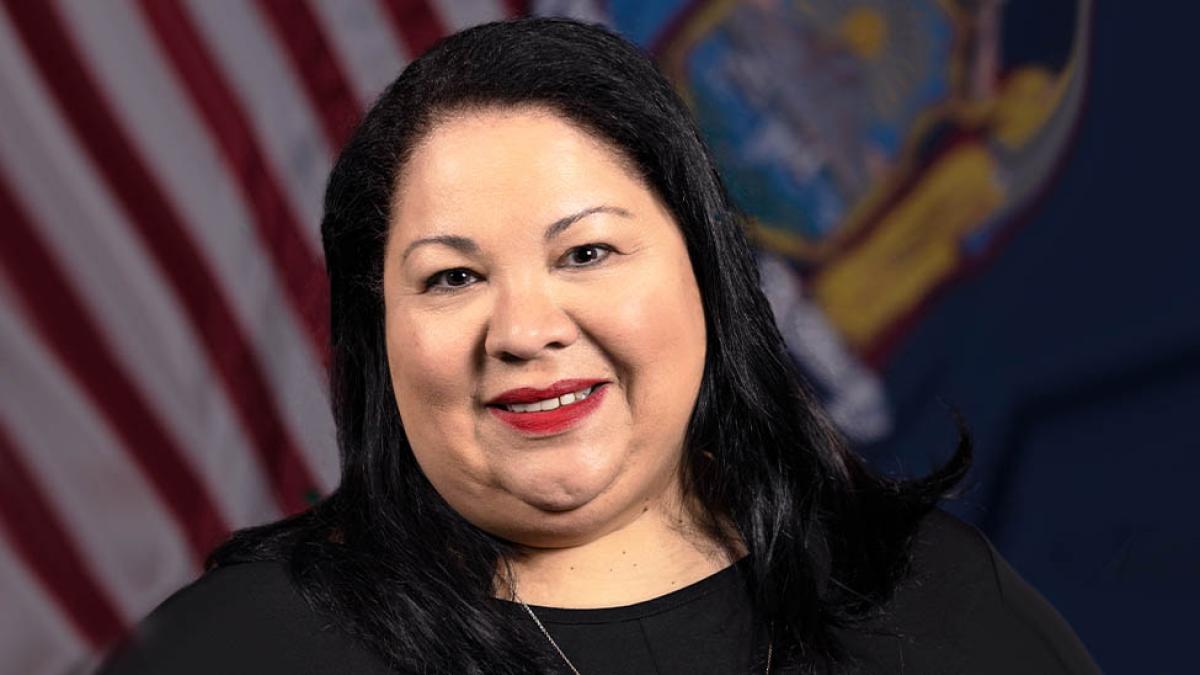
The Authentic Advocate: Peter Fragale '88
Bronx native and senior human resources executive Peter Fragale '88, Criminal Justice, has provided critical workforce support during the COVID-19 pandemic.

You have had a very successful career in human resources, and currently serve as senior assistant vice president, HR Shared Services, at NYC Health + Hospitals, the largest public health care system in the nation. Tell us more about this role.
Our Shared Services division is the heartbeat of our Human Resources (HR) department. All vital employee records are maintained by our HR information systems and our incredible service unit triages and assists employees graciously with updates and self-service matters pertaining to benefits and work and life changes. Shared Services provides strategic reporting capabilities to our business stakeholders, facilitates employee safety compliance requirements, and manages corporate-wide engagement events.
What aspects of your professional life are you most proud of and why?
Employee engagement, that is, seeing and acknowledging everyone you come in contact with at work every day, has been the staple of my leadership approach and most significant contribution I continue to strive for and provide. This approach requires developing relationships with staff, being authentic and vulnerable, and providing developmental feedback and coaching in the moment. Modeling this behavior and sharing this approach with every manager and supervisor has been the most impactful and satisfying aspect of my professional career.
From planning, hiring, and execution, you’ve been instrumental in the establishment of testing centers across New York City and its five boroughs in the early part of the COVID-19 pandemic.
Tell us more about this important accomplishment during a very critical time in our city.
City agencies provided millions in emergency funds to NYC Health + Hospitals to develop and launch the Test & Trace program within a two-month period, and as senior HR lead for this critical initiative, I stood firmly behind my staff, providing the necessary tools and resources to sustain operations. We led the effort to slow COVID-19 transmission under extremely tight deadlines by partnering with our facility HR departments to meet the workforce surge, shifting our roles to increase capacity of work, and adapting to quickly changing needs and new work environments, while providing communication and guidance to the workforce. This critical support allowed our workforce to continue to serve our mission of extending equally to all New Yorkers, regardless of their ability to pay, comprehensive health services of the highest quality in an atmosphere of humane care, dignity, and respect.
How did you get started in your career?
During my junior and senior years, I participated in an internship program through Pace with the City of New York’s now-defunct Urban Corps. As part of this, I was assigned to several New York City agencies, including the Department of Investigation (DOI), who offered me a job two weeks after graduation. I remained with DOI for many years, until I received an opportunity to work as the deputy director of background investigations with NYC Health + Hospitals. That position exposed me to a number of other human resources-related areas that I ultimately learned and mastered and gave me the opportunity to grow in the field.
What attracted you to pursue a Bachelor of Science in Criminal Justice? Were there certain faculty who were instrumental in your academic journey?
I was fortunate to be raised by parents who instilled in me the importance of family and provided guidance and protection with compassion. I started my freshman year at Pace as an undeclared major in the hope that I would be led to a course of study that would embody the values that were important to me. I was fortunate once again to have found Professor of Criminal Justice Casper Faughnan, who demonstrated a unique style and approach to this subject that shattered any negative stereotype I may have had regarding law enforcement. In addition, Professor Lawrence Hundersmarck’s philosophy courses motivated me to see life through different lenses and I learned to expand and extend my learning capabilities, question thoroughly, and to write and think with intention.
My time at Pace taught me about accountability and the benefits of being well informed and using the related knowledge to face future difficulties and make tough decisions.
College is a significant time in a person’s life. As you look back at your time as a Dyson student, how did it influence you to become the person you are today?
College was a pivotal part of my life, as it provided the opportunity for me to be independent and take full responsibility for all my actions, which always have consequences. My decisions during my time at Pace taught me about accountability and the benefits of being well informed and using the related knowledge to face future difficulties and make tough decisions. A born, raised, and life-long resident of the Bronx, I am also a first-generation college student, and I am glad that my parents were able to experience the fruits of their hard labor in witnessing my graduation and the professional career my Pace education provided me.
What advice would you give to our students as they navigate their college life?
Be authentic and always be kind.
More Dyson Alumni
Marketing and publishing executive-turned author Ebony Ladelle writes about the universal language of love.
Marketing executive and alumnus Richard Bourque '00 draws inspiration for his creative process from his Art History degree, strong work ethic, and desire to make positive progress in the world.
From award-winning journalist, to first female editor-in-chief, CEO, and publisher of the nation’s largest Spanish language newspaper, to New York State Secretary of State, Commissioner Rossana Rosado is inspired by the stories of others.


